You are here
New Releases
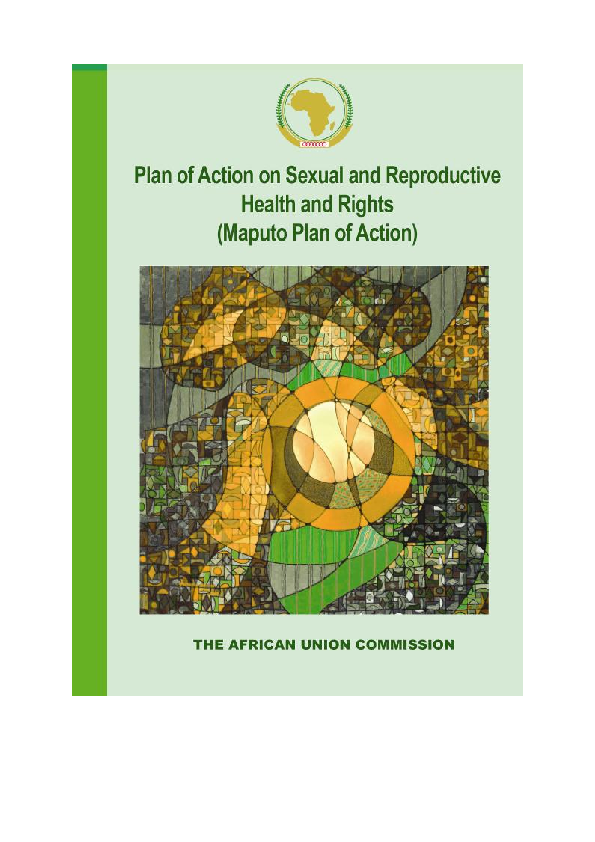
Plan of Action on Sexual and Reproductive Health and Rights (Maputo Plan of Action)
The Maputo Plan of Action for the Operationalisation of the Sexual and Reproductive Health and Rights Continental Policy Framework seeks to take thecontinent forward towards the goal of universal access to comprehensive sexual and reproductive health services in Africa by 2015. It is a short term plan for the period up to 2010 - recently extended to 2015 - built on these action areas: integration of sexual and reproductive health (SRH) services into PHC, repositioning family planning, developing and promotingyouth-friendly services, unsafe abortion, quality safe motherhood, resource mobilisation, commodity security and monitoring and evaluation.
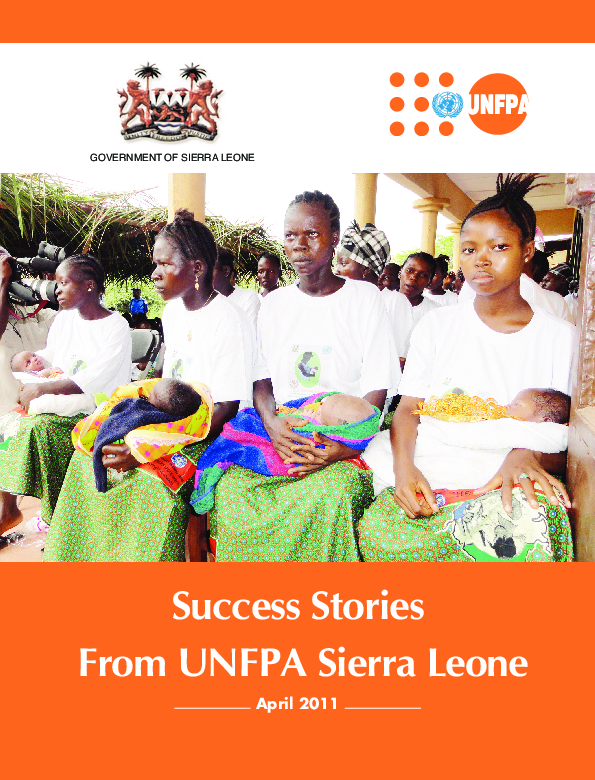
Success Stories from UNFPA Sierra Leone
After more than a decade marked by a protracted civil war that saw the massive destruction of Sierra Leone’s socioeconomic infrastructure, the erosion of the national human resource base, and the breakdown of the entire system, the country has moved gradually through emergency, transition and to an active development phase.
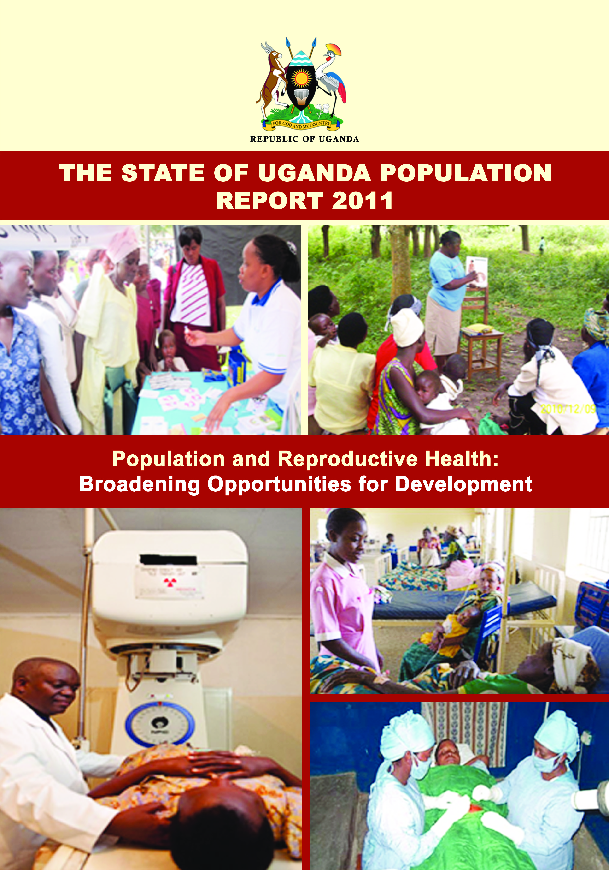
The State of Uganda Population Report 2011
Every year, the Population Secretariat in the Ministry of Finance Planning and Economic Development, in its State of the Population Report, publishes key population concerns that need to be addressed in Uganda's quest to improve the quality life of its people. The key objective of this report is to provide comprehensive information and data to stimulate broader and deeper thinking, and to contribute to the public debate about Uganda's future. The report reflects on the most important population and development challenges facing Ugandan society, and their causes and consequences.
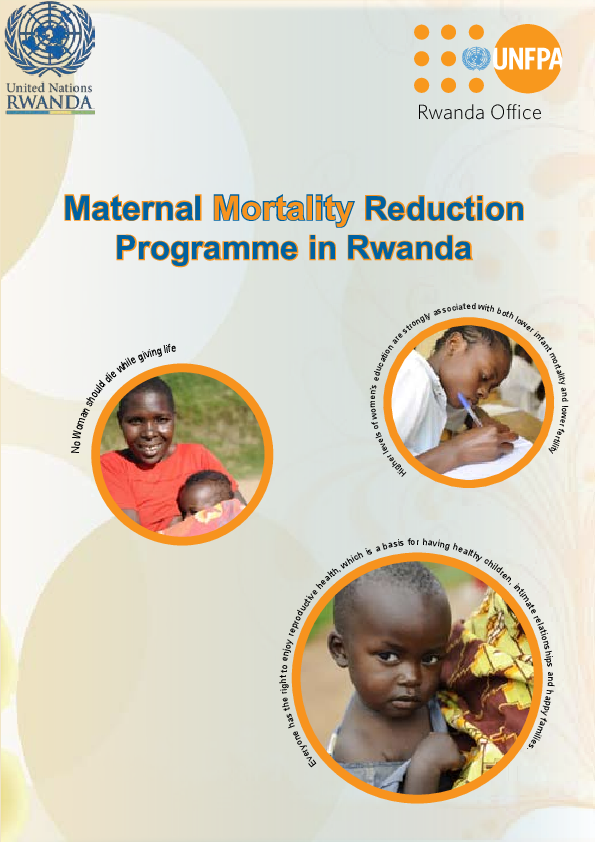
Maternal Mortality Reduction Programme in Rwanda
The health sector in Rwanda has made significant progress in recent years. Reproductive health, including family planning and maternal health, is a priority in the Ministry of Health Strategic Plan. The fight against maternal deaths is a concern in Rwanda and registers as one of Rwanda's MDG priorities.
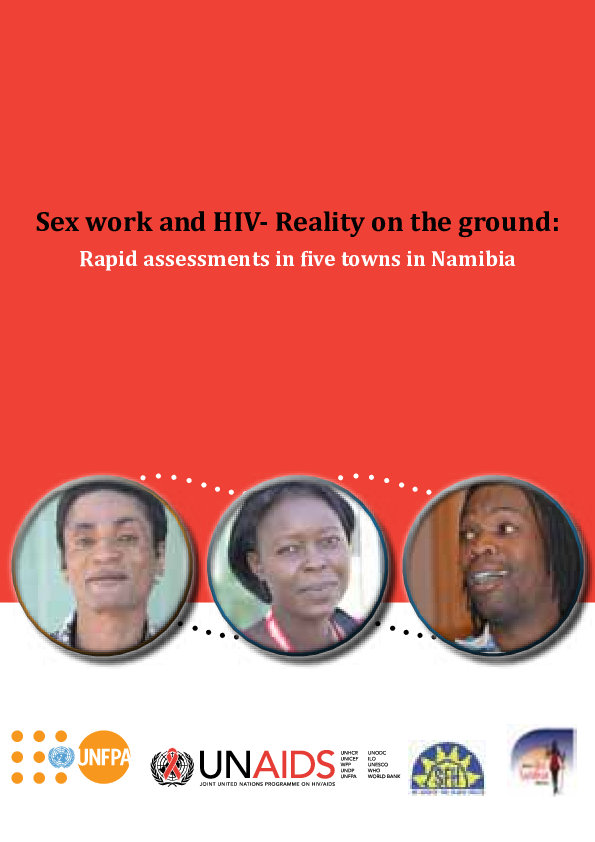
Sex work and HIV - Reality on the ground:
In October 2011, UNFPA, UNAIDS, SFH and a number of Namibian sex worker organizations conducted a series of rapid assessments on sex work and HIV in five towns in Namibia. The aims of the rapid assessment project were to engage sex workers in assessing barriers to HIV prevention and treatment and proposing relevant solutions in five towns in Namibia; to build the capacity of sex worker leaders and organizations at national and local levels; and to demonstrate good practice in community participation and empowerment approaches.
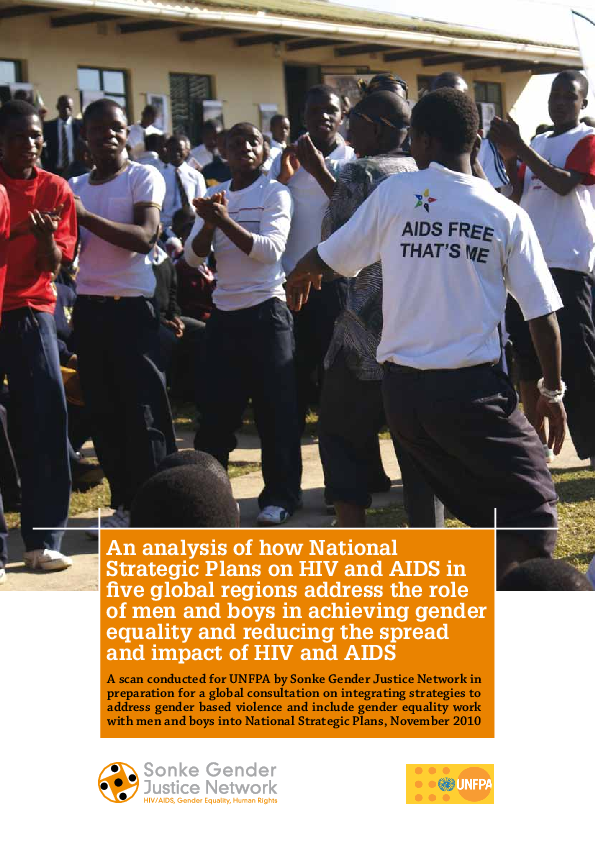
National Strategic Plans on HIV and AIDS in five global regions
In response to increasing acknowledgement of the importance of engaging men and boys within gender equality and HIV work, Sonke was commissioned by the UNFPA, United Nations Population Fund, to carry out a desk review of HIV and AIDS National Strategic Plans (NSPs), analysing the extent to which they commit to working with men and boys for gender equality and in relation to HIV and AIDS.
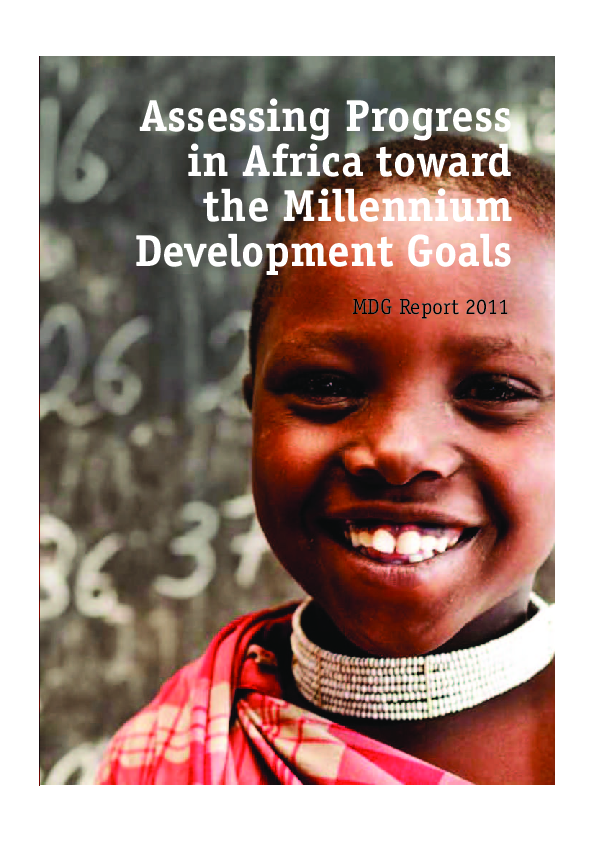
Assessing Progress in Africa Toward the Millennium Development Goals
While Africa has generally made positive progress towards achieving the eight Millennium Development Goals (MDGs), performance has been mixed across indicators and countries. Recent food, fuel and financial crises, coupled with threats from climate change and instability in North Africa, are likely to affect the region's MDG achievement. Based on current trends, the continent's overall pace of progress is insufficient to achieve the goals by the target date of 2015.
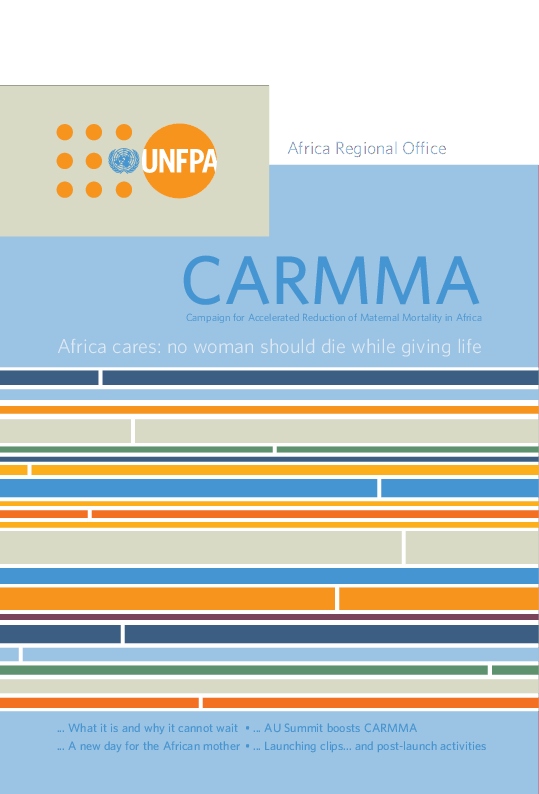
CARMMA
CARMMA, the Campaign on Accelerated Reduction of Maternal Mortality in Africa, is an initiative of the African Union Commission to curb the continentally-high pregnancy-related deaths. Maternal Mortality Ratio (MMR) is the number of pregnancy-related deaths per 100,000 live births - or the number of women who die during pregnancy or within 42 days of delivery or termination, per 100,000 live births during that year. Globally, there are over 358,000 maternal deaths each year and Africa accounts for more than half (53 per cent).
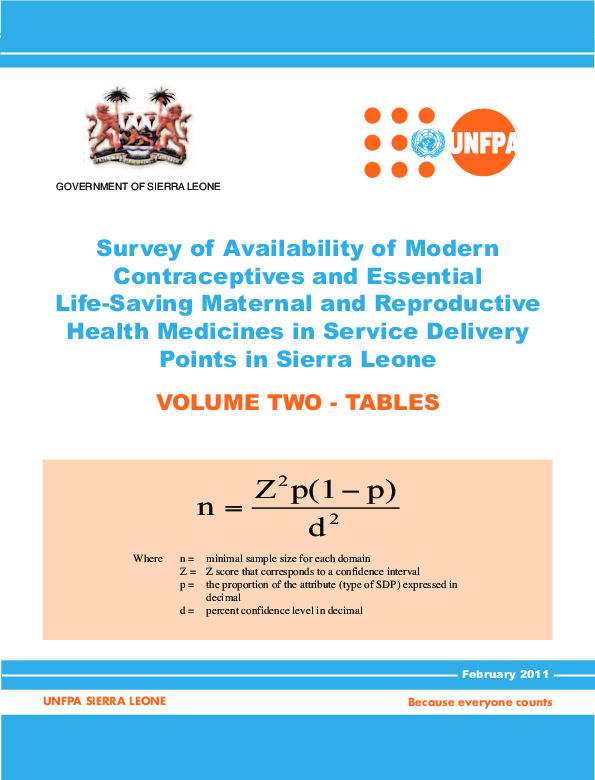
Survey of Availability of Modern Contraceptives and Essential Life-Saving Maternal and Reproductive Health Medicines in Service Delivery Points in Sierra Leone
This first annual report of the ‘Survey of Modern Contraceptives and Essential Life-Saving Maternal and Reproductive Health Medicines in Service Delivery Points’ in Sierra Leone is part of the new reporting system of the Global Programme on Reproductive Health Commodity Security (GPRHCS). The survey was undertaken to provide benchmark data information which are essential for sound Reproductive Health Commodity Security (RHCS) planning and for making administrative and policy decisions about the same. Three outcome indicators in the reporting framework were assessed to obtain data for country level indicators.
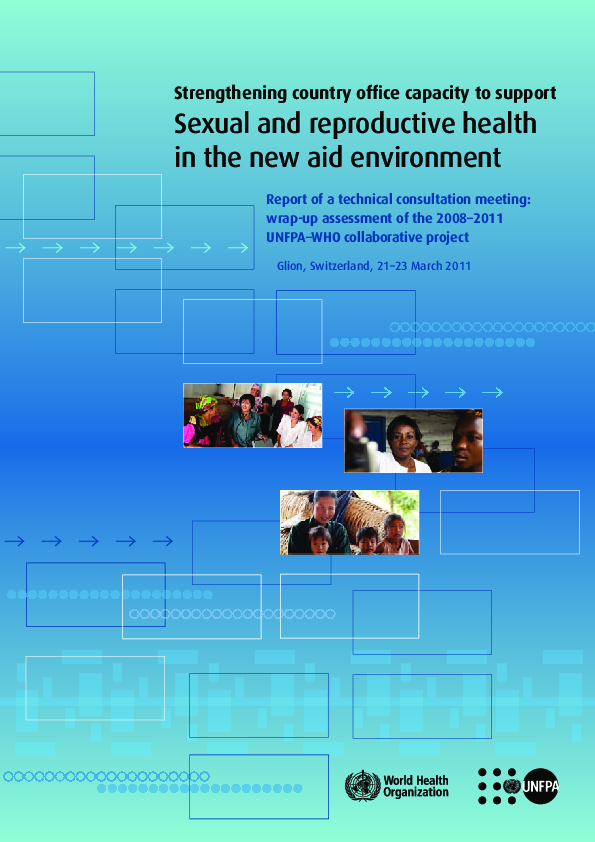
Sexual and Reproductive Health in the New Aid Environment
Following the conclusion of the project “Strengthening country office capacity to support sexual and reproductive health in the new aid environment”, a series of four country case studies was undertaken in Malawi, Lao People’s Democratic Republic, Senegal and Tajikistan in early 2011.